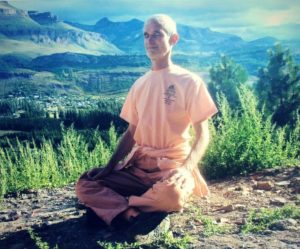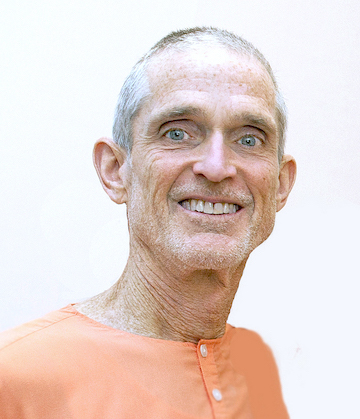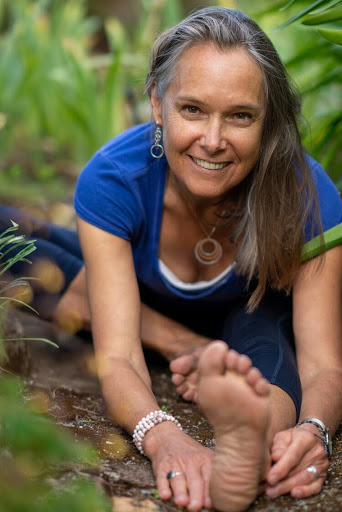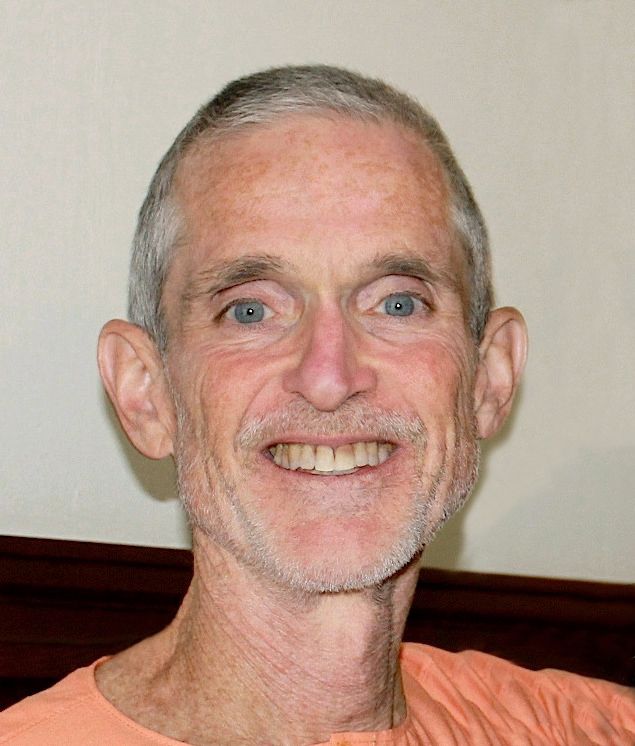Self-reflection as a Spiritual Practice
by Swami Ramananda
As the daylight hours shorten in the northern hemisphere this time of year, it’s natural to spend more time indoors. Plant and animal life alike pause from growing and withdraw from activity. We too benefit from periods of rest and reflection as a preparation for the next seasons of growth, and with the surges in COVID-19 cases, retreating from interactions has become critical to our health.
As spiritual aspirants, pausing to reflect on our behavior, and the thoughts and motives behind it, are an essential part of the spiritual path. Increased self-awareness enables us to disentangle ourselves from the habitual thought patterns that cloud our vision. Then we can uncover the roots of our suffering and expose the unconscious beliefs that are the seeds for frustration and struggle.
There are significant obstacles to reflecting this way. Taking an honest look at the difficult moments in our lives can be challenging. Allowing ourselves to feel the sorrow or anxiety in our hearts is painful and can make us feel ashamed or depressed. For many of us, acknowledging our struggles threatens the image we are trying to live up to and project to others.
Instead of stopping to reflect on a moment of discomfort, we may simply divert our attention to some form of entertainment or escape, like checking messages or social media. In this digital age, our senses are constantly drawn outward by our numerous devices, making it easy to ignore feelings of angst or upset, and leaving no time to understand the reasons behind them.
One way to support an effort to sincerely look at ourselves is to talk with a trusted friend, someone with whom we can be completely honest. We may need the safety of their genuine care to allow ourselves to look in the dark corners of our hearts and allow ourselves to explore painful emotions. When we are able to release our anger or grief, we can often see the unhealthy expectations or desires that gave rise to it.
For example, we all like compliments and it can be insightful to see how easily we become angry or hurt when we are criticized. Looking objectively, we can see how our desire to be liked or admired compels us to go to great lengths to make ourselves look good or protect our self-image.
Writing regularly in a journal is another beneficial practice for self-reflection. Knowing it is only for our eyes, we can train ourselves to bare our souls without fear. We can experiment with giving a voice to our confusing feelings to see what lies beneath the compulsive behaviors that even we may not understand. What hidden need might compel me to twist the truth, fall again into an addictive habit, take more than my share, or blurt out some hurtful words?
A regular meditative practice makes it possible to stand apart from our own minds with enough mental strength and clarity to ask such questions. Meditation develops the neutral awareness needed to analyze our behavior without identifying with or rationalizing it. Only with such mindfulness will we be able to catch ourselves before reacting on impulse and slow down enough to make a conscious choice instead.
Making conscious choices is the only way we can expect to keep our balance and maintain a positive frame of mind in a world full of ever-changing circumstances beyond our control. We empower ourselves not by successfully controlling things around us, but by choosing to think and act guided by the deeper voice of the Self that keeps our hearts open and free of selfishness.
Taking time to reflect need not only apply to difficulty. Reflecting on the many gifts we have received keeps the difficulties in perspective and reminds us of how blessed we are. Keeping the big picture in mind – knowing we are safe, relatively healthy, and have more than adequate food and shelter – exposes the petty nature of many of our problems.
And if we are serious about wanting to experience the unchanging peace that is our birthright, we must welcome the suffering that challenges us to seek it. Looking deeply, we have the opportunity to see how much of our pain is self-inflicted. Letting go of our efforts to arrange for some form of external happiness, we are free to experience the natural joy that comes from accepting what life brings us and learning how to love each other more fully.
Swami Ramananda is the President of the Integral Yoga Institute in San Francisco and a greatly respected senior teacher in the Integral Yoga tradition, who has been practicing Yoga for over 35 years. Ramananda offers practical methods of integrating the timeless teachings and practices of yoga into daily life, and transforming the painful aspects of human experience into steps toward realizing one’s full potential.
He leads beginner, intermediate and advanced level yoga teacher training programs in San Francisco, and offers a variety of programs in many locations in the U. S., Europe and South America. Ramananda trains Yoga teachers to bring Yoga into corporate, hospital and medical settings and has taught mind/body wellness programs in many locations. He is a founding board member of the Yoga Alliance, a national registry that supports and promotes yoga teachers as professionals. His warmth, wisdom and sense of humor have endeared him to many.







